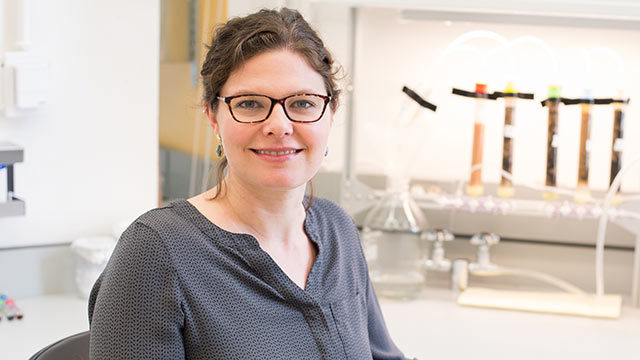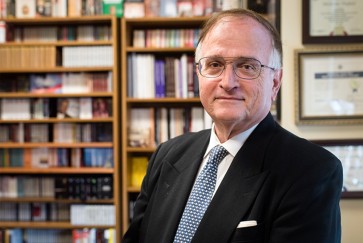Northwestern University geologist Magdalena Osburn has received the prestigious Faculty Early Career Development (CAREER) Award from the National Science Foundation (NSF), the foundation’s most prestigious honor for junior faculty members.
Osburn is an assistant professor of Earth and planetary sciences in the Weinberg College of Arts and Sciences. She will receive $764,417 over five years from the NSF’s Geobiology and Low-Temp Geochemistry Program within the Directorate for Geosciences to study microorganisms that live deep inside the Earth’s crust.
“I am honored to receive this recognition and support from the NSF,” Osburn said. “This project brings together lines of research that have been developing in my lab over the last few years, focusing on shallow and deep subsurface microbial ecosystems.”
Extending kilometers deep into the Earth’s crust, a vast ecosystem of bacteria and other microorganisms live beneath our feet. While scientists know the identities of these microbes, they know much less about their behavior. To study communities living hundreds to 10,000 feet underground, Osburn will develop a new tool to map microbial food webs by examining microbes’ chemical signatures.
“This project brings me back to my roots in isotope ecology,” Osburn said. “This integrative approach will help my group really understand what subsurface microbes eat and unravel what this means for the Earth system today and throughout time.”
The CAREER Award is designed to support promising young faculty members who exemplify the role of teacher-scholar through the combination of outstanding research and education. In addition to the research, Osburn will partner with Science in Society and Chicago Public Schools to introduce Earth science and field-based inquiry to students with diverse backgrounds and perspectives. She also will host some of these students as interns for immersive laboratory experiences.


